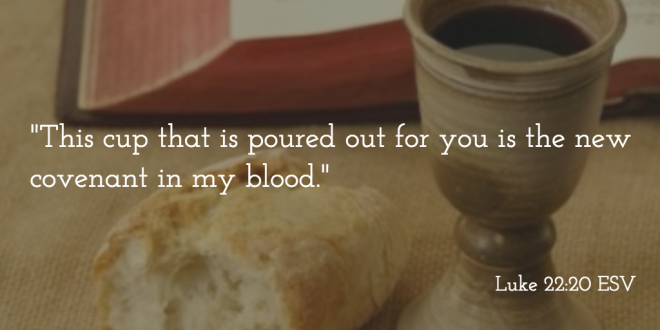Here we are for another week. This week we get to delve into the Spirit of God (a topic I am considering as the next series on Fellow Imitators). Come join me as we continue in Part V: Session 3: The Spirit of God. Multiply!
How often do you think about our need for the Holy Spirit? Do you think about Him much, or does He just kind of fade into the background, taken for granted? The Holy Spirit is actually vital to our salvation. Without Him, we cannot know God, we cannot understand God’s word and we cannot defeat the sin in us. He is our true source of spiritual power.
In studying the Old Testament, we confirmed that humanity cannot succeed at the task of following God faithfully without help. In Ezekiel 36, God declared that Israel had a heart of stone, a dead spirit. What they need was a spiritual transfusion, a complete transformation.
“I will sprinkle clean water on you, and you shall be clean from all your uncleannesses, and from all your idols I will cleanse you. And I will give you a new heart, and a new spirit I will put within you. And I will remove the heart of stone from your flesh and give you a heart of flesh” (Ez. 36:25-27)
God’s people weren’t going to receive just any old spirit, they needed the Spirit of God. Transformed from the inside out by the power of God.
Jesus told His disciples of the Spirit’s coming, but this was not to imply that the Spirit did not yet exist or that He was not already at work in the world. Genesis tells us that the Spirit was active in the creation of the world and He had a hand in guiding those called by God. In the New Testament, however the Spirit was to begin working through man in a new and powerful way.
Discussion Question #1: Take a minute to consider the significance of the promise of the Holy Spirit in Ezekiel 36:25–27. Explain why this promise is so important in the history of redemption.
Who Is the Holy Spirit?
Yes, the Holy Spirit is a “who” and He is fully God, just as Christ is fully God. This concept, called the Trinity, is referred to when the Bible speaks of the Father, the Son and the Holy Spirit. Each a distinct person, yet each clearly God.
When we acknowledge the Holy Spirit as a “who”, we need to realize what this means in the way we interact with Him. He is a person who can act, who can be grieved.
Discussion Question #2: How should seeing the Holy Spirit as a person and as God Himself change the way you relate to Him?
The Spirit in the New Testament
The New Testament is full of the Spirit’s work in the lives of God’s people. We see that John the Baptist and Jesus, Himself, are filled with the Spirit as they carry out their ministries (Luke 1:15 and 4:1). Time and time again throughout the Gospels, we are reminded of the Spirit’s work through Jesus.
In Acts 2, the Spirit makes a very dramatic entrance. Jesus had given the apostles an impossible (for man) mission and then told them to go to Jerusalem and wait. The Spirit makes His grand entrance and suddenly the apostles are proclaiming the “mighty works of God” in many different languages. Peter explains that this indwelling was prophesied in the Old Testament. Israel had been waiting for the empowerment by God’s people and suddenly the day was here. God’s Spirit was working in His people.
Discussion Question #3: Read Acts 2 carefully. As you read, pay attention to two things: (1) references to Old Testament truths and promises and (2) references to the Holy Spirit. What references do you see in Peter’s sermon to some of the key concepts you studied in the Old Testament sessions?
Discussion Question #4: What does this passage say about the Holy Spirit? How was the Holy Spirit working at this significant moment in redemption history?
The Spirit of God and the Word of God
Our Bible, the Scriptures are a direct result of the Spirit’s workings.
“For no prophecy was ever produced by the will of man, but men spoke from God as they were carried along by the Holy Spirit” (2 Peter 1:21 ESV).
The Scriptures are not the work of man alone, but by the direct inspiration of God.
The Ministry of the Spirit
When Jesus rose from the grave, the disciples probably expected Jesus to carry on with His ministry and grow His kingdom, and yet He left. In fact, He told His disciples that it was better that He was leaving. How could it be better? Well, Jesus explains that if He didn’t leave, the “Helper” would not be able to come and empower God’s people.
“Nevertheless, I tell you the truth: it is to your advantage that I go away, for if I do not go away, the Helper will not come to you. But if I go, I will send him to you” (John 16:7 ESV).
The Holy Spirit is the “Helper” Jesus promised. The Spirit is God’s gift to all people to enable them to do the work that Jesus started during His ministry on earth, that is to establish His kingdom. It is only through the power of the Spirit that we are able to walk faithfully with Christ. “So great is our need for the Spirit that we are commanded to walk by the Spirit (Gal. 5:16), be filled with the Spirit (Eph. 5:18), pray in the Spirit (Jude v. 20), and put sin to death by the Spirit (Rom. 8:13), among other things. The Spirit secures our faithfulness till the end” (286).
Discussion Question #5: Read Romans 7 and 8. What does Paul’s comparison of these two ways of living say about the role of the Holy Spirit and our need for Him?
The Spirit in God’s Mission
God’s plan of redemption marches on and His work is accomplished by the Spirit as He works in the lives of His people. We cannot accomplish all God wishes to do through us with the power of the Holy Spirit. We cannot fulfill the Great Commission without the Spirit.
In our pursuit of the Spirit, however, we need to be sure that we are not lead away from Christ. “Like a spotlight, the Spirit focuses the attention on Christ and His salvation. Therefore, we should not separate the work of the Spirit from the work of Jesus (or God the Father, for that matter)” (286). The Spirit can do amazing things, but we should not seek Him for a supernatural experience. We have to trust that He will reveal His the power the way He wants to. “More often than not, the Holy Spirit guides us by shaping who we are. He gives us new desires so that we gradually begin to live with the goal of glorifying God in all of our decisions. Though this doesn’t look as dramatic as healing the sick or foretelling the future, it is every bit as miraculous” (286).
Discussion Question #6: How have you seen the Spirit of God working in the life of your church? If you are having trouble identifying the work of the Spirit, why do you think the Spirit’s work isn’t being clearly seen in your church?
The Spirit of God in the Church
The Spirit not only dwells within us individually, but He dwells in us collectively as the church. God wants us to function as a community united in purpose and the Spirit does His best work when we are just that, united. Each of us has a gift that the Spirit bestows to us, teaching, leadership, encouragement, and others. We are meant to share these gifts with each other so that the entirety of the church may be blessed.
Discussion Question #7: How are you partnering with other members of the body of Christ to be used by the Spirit in fulfilling God’s mission on earth?
Discussion Question #8: Spend some time in prayer. Thank God for the incredible gift of the Holy Spirit. Pray that you would be empowered to pursue and rely on the Spirit’s power in your life. Pray that God would work through the life of your church to bring healing, hope, and change to the world around you.
Thank you again for joining me this week. I hope you will spend some time getting to know the Spirit this week and start noticing His work in you. God bless!




